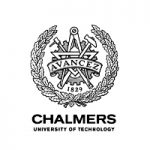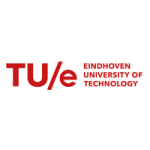项目介绍
We offer a PhD position within digital architectural design and robotic fabrication, with a strong circular design agenda focusing on digital support of architectural reuse involving uniquely shaped building elements. This PhD project provides an opportunity to creatively bridge architectural design, digital technologies and sustainability science, contributing to global research for a resource-efficient built environment. You will be supported by leading researchers at the Department of Architecture and Civil Engineering and partners from the Digital Twin City Centre, funded by Sweden’s Innovation Agency Vinnova.
PhD project summary
As a PhD student, you will work on the research project “Reclaimed, Redesigned, Retwinned: Digital Twins in Architectural Reuse” at DTCC. This project aligns with circularity and decarbonization agendas in architecture, focusing on digitally aided design with reclaimed materials. Your tasks will include developing custom digital workflows and tools to:
- Utilize available data on existing material stocks in the city for architectural design and reuse.
- Complete missing data using digitization protocols like 3D scanning for digital inventorying, inspection, and element detection.
- Manage data with custom-developed filtering techniques.
- Use the data in architectural design processes involving reuse to create design options for reused component distribution using machine learning, generative AI, and multi-objective optimization.
- Evaluate and select design options based on user-defined parameters such as environmental impact, aesthetic value, and cost.
Additionally, you will develop robotic fabrication workflows for 3D printing to fit uniquely shaped components waste-free and with high design quality.
About the research environment
The PhD student will join the research area Architecture, Media, and Material Practice, part of the division of Architectural Theory and Methods at the Department of Architecture and Civil Engineering (ACE). Our work explores how emerging digital media can enhance resource-efficient architectural design. We specialize in digital architectural design, robotic fabrication, and have strong ties to architectural practice. Our diverse team includes researchers, teachers with architectural backgrounds, PhD students, and early-career academics. Our main research facility is the Robotic Fabrication Lab, where we conduct projects on resource-efficient digital repair of reclaimed building components and robotic 3D printing with upcycled, reused, and biobased materials. The PhD project is part of the Digital Twin Cities Centre, supported by a network of academic, industrial, and public sector partners.
The PhD student’s main supervisor will be Malgorzata Zboinska, Associate Professor in Architectural Design, Digital Technology and New Media Art, head of the research area Architecture, Media, and Material Practice, and Development Leader for the Robotic Fabrication Lab at Chalmers ACE. For aspects within sustainability science relating to environmental assessment tools and urban mining developments, you will be supported by co-supervisor Alexander Hollberg, Associate Professor in Computational Sustainable Design, and leader of the research area Sustainable Built Environments at Chalmers ACE.
The successful candidate will be admitted to the Graduate School in Architecture and earn a doctoral degree in architecture.
Main responsibilities
As part of your research project, you will:
- Conduct literature studies and interviews with relevant actors.
- Source and digitize buildings and salvaged components for experimental design trials.
- Perform systematic architectural prototyping experiments and robotic fabrication.
- Develop digital workflows and custom Grasshopper scripts/plugins for digital twinning of architectural components and scan data management.
- Apply ML/AI for generative design.
- Create custom tools for reused element matching and distribution.
- Develop tools for environmental and architectural quality assessment.
- Design robotic sequences for zero-waste 3D printing and other reuse-related fabrication routines.
- Develop custom hardware, such as robot end-effectors for 3D scanning, element inspection, and architectural prototyping.
- Produce and assemble full-scale architectural demonstrators featuring reused materials, to be exhibited at public events and design venues.
Besides research, you will:
- Complete your PhD education by completing courses at an advanced level to meet the ECTS credit requirements for a doctoral degree at the Graduate School in Architecture.
- Prepare material for and participate in project meetings, research environment meetings, stakeholder workshops, international conferences, exhibitions, and other relevant events.
- Take and share responsibility for research tools, equipment and lab procedures with other group members.
- Take and share responsibility for the organization of events related to the project topic and larger agendas relating to our research environment.
- Communicate research results internally and externally, with academia, industry, and the public.
- If applicable, teach and supervise master-level students, and carry out other department work in a scope that does not exceed 20 % of a full-time position.
The anticipated start for the position is in September 2025.
Read more about doctoral studies at Chalmers here.
Qualifications
Experience and skills
- Master’s degree in architectural design, urban planning, architectural engineering, sustainable building, building technology, or a related field. Full education should comprise at least four years of study (240 ECTS credits), whereof at least 60 ECTS credits at advanced (Master’s) level (or equivalent). By the start of the enrollment in the PhD program, i.e., September 2025, the candidate must also hold a Master’s degree, having completed a degree project (thesis) at advanced (Master’s) level, representing at least one term of study (30 ECTS credits).
- Mature skills in computational design with Grasshopper in Rhinoceros 3D, documented through relevant projects presented in a portfolio appended to the application.
- Basic skills in programming using languages such as Python or C#. Clear willingness to further develop these skills independently.
- High degree of comfort in learning and using various digital tools, such as 3D scanning, photogrammetry, 3D printing, generative AI, optimization, computational environmental analysis etc. If you have not worked with a tool, eagerness and ability to learn a new tool quickly and independently.
- Excellent verbal and written communication skills in English.
- Excellent graphic and visual communication skills.
Personal traits
- Deep interest in digital design and fabrication, reuse, circularity and sustainability in architecture and the built environment, motivated in a personal letter appended to the application.
- Perseverance, diligence, patience, flexibility and genuine interest in making things work out despite encountered challenges and changing conditions.
- Interest in producing high-quality academic output.
- Attention to details while being able to zoom out and have a broad outlook on the research at hand.
- Natural ability to take initiative, work independently, and take responsibility for driving one’s own work forward.
- Ability to create and maintain structure and order in the research work.
- Ability to create realistic schedules to meet the project deadlines while producing high-quality output.
- Excellent collaborative skills to facilitate good interaction with other scholars and stakeholders, and a deep interest in working with all members of our team to ensure that the project moves forward and yields the expected results.
- A problem-solving and highly motivated personality, with an interest in continuously advancing the project work creatively and feasibly.
Contract terms
Full-time temporary employment. The position is limited to a maximum of five years.
What we offerChalmers provides a cultivating and inspiring working environment in the coastal city of Gothenburg.
Read more about working at Chalmers and our benefits for employees.
Chalmers aims to actively improve our gender balance. We work broadly with equality projects, for example the GENIE Initiative on gender equality for excellence. Equality and diversity are substantial foundations in all activities at Chalmers.
Application procedure
The application should be written in English and be attached as PDF-files, as below. Maximum size for each file is 40 MB. Please note that the system does not support Zip files.
Applications must include:
CV (Please name the document: CV, Family name, Ref. number)
- CV.
- Names and contact details of two references that we can contact.
- If applicable, bibliographic details and copies of academic publications if unavailable online.
Personal letter (Please name the document as: Personal letter, Family name, Ref. number)
1-2 pages where you:
- Introduce yourself.
- Describe your previous experience of relevance for the position (e.g. education, thesis work and, if applicable, research activities).
- Describe, exemplify and motivate your interest in digital tools, reuse and sustainability in architecture, design, and construction.
Design portfolio, presenting 3-5 examples of architectural or other projects showing your skills in circular/sustainable design, computational design and digital fabrication; if relevant, also projects involving the construction and/or exhibition of architectural demonstrators, installations, or prototypes (please explicitly state your tasks if the projects were collaborative).
Personal research synopsis for the PhD project (max 3 pages A4, font Arial 11 pt, single line spacing). It should be written and authored by yourself (not machine-generated e.g. using AI text generators) and directly linked to the theme of our research project as described under heading “PhD project summary” above, and contain:
- Introduction and background (why is the research important and short overview of your favorite architectural projects and research on the topic, including references to relevant sources and articles)
- Project goals and anticipated results (what do we want to achieve in our project, described in concrete terms)
- Research methods (what will be the specific approaches, procedures or techniques you plan to use to tackle the project and reach the goals you stated in point 3)
- Conclusion (summarize the relevance, state why undertaking this research is important for architectural design practice and more generally for society and environment.
Other documents
- Copy of master’s thesis.
- Attested copies and transcripts of completed education, grades and other certificates.
Please note: The applicant is responsible for ensuring that the application is complete. Incomplete applications and applications sent by email will not be considered.
Please submit via the “Apply” button below.
Application deadline: 19 May, 2025
联系方式
电话: +46 (0)31-772 10 00相关项目推荐
KD博士实时收录全球顶尖院校的博士项目,总有一个项目等着你!





